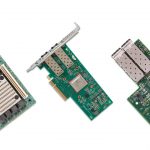Still on the fence about cloud v. on-prem HPC? Here are a few disadvantages of cloud computing you may not have considered.
- Downtime: This may be one of the biggest disadvantages. Cloud computing is totally dependent on the internet connection, when that’s down Cloud is down as well.
- Security and Privacy: Using a cloud-based infrastructure means that all of your organization’s data is accessible outside your company. Also, using cloud-powered technologies means you may need to give your service provider access to important business data.
- Limited Control and Flexibility: The cloud infrastructure is entirely owned, managed, and monitored by the service provider. Although cloud users do have some control over their applications, data, and services, they have limited control over the function and execution of the hosting infrastructure.
- Cloud Computing Platform Dependencies: Vendor lock-in is another downside of cloud computing, sometimes making it rough to migrate from one cloud platform to another–it can be complex and expensive to reconfigure applications for a new host.
- Cloud Computing Costs: The total cost is often higher than the user expected. For instance, cloud software may look like an affordable option when compared to software installed in-house. But some specific features that are essential for your business can be missing in cloud software. Other times you may be charged for features you don’t need.
- Limited Support: Cloud-based services are notorious for providing little or no support. The cloud service industry ratio for support staff-to-customers is 3:500.
- Lack of Insight into your Network: With cloud computing you will have access to data like CPU, RAM, and disk utilization. But that’s not much help if you are dealing with, say, a bug in your code, or a hardware problem.
If you see yourself anywhere in the following list of companies that are not great candidates for Cloud computing, look before leaping:
- Organizations with complex or industry-specific IT requirements
- Organizations that deal with sensitive information
- Organizations that require a specific piece of hardware (like a graphics processor for rendering) or that depend on hard drives
- Organizations that function in remote locations where latency is long
- Organizations that have continuous run times
- Organizations that have a legal or business requirement that the server runs in a physical location that is not covered by cloud providers.
For most organizations, on-premise hardware and software or a cloud/on-prem hybrid will always be the safest, most reliable way to do what we need to do in the time we have to do it. Stay tuned for an upcoming post on Colocation Computing!
Contact us for more information about on-prem HPC. 952-808-1000; engineering@nor-tech.com/.
About Nor-Tech
Nor-Tech is on CRN’s list of the top 40 Data Center Infrastructure Providers along with IBM, Oracle, Dell, and Supermicro and is also a member of Hyperion Research’s prestigious HPC Technical Computing Advisory Panel. The company is a complete high performance computer solution provider for 2015 and 2017 Nobel Physics Award-contending/winning projects. Nor-Tech engineers average 20+ years of experience. This strong industry reputation and deep partner relationships also enable the company to be a leading supplier of cost-effective Lenovo desktops, laptops, tablets and Chromebooks to schools and enterprises. All of Nor-Tech’s high performance technology is developed by Nor-Tech in Minnesota and supported by Nor-Tech around the world. The company is headquartered in Burnsville, Minn. just outside of Minneapolis. Nor-Tech holds the following contracts: Minnesota State IT, GSA, University of Wisconsin System, and NASA SEWP V. To contact Nor-Tech call 952-808-1000/toll free: 877-808-1010 or visit https://www.nor-tech.com.



